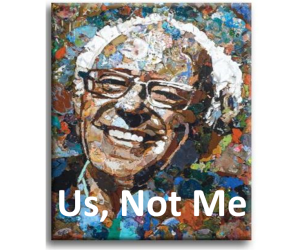When John A. Smith – he always signed his name that way, because that’s what the army expected – appeared St. Mary’s church on Ash Wednesday, the first evening of Lent, a murmur of shocked conversations, barely whispered, rolled through the congregation, from the back of the church, where John stood talking to Father Jim, to the front, near the altar, where people craned their necks to see him.
Father Jim looked pleased as he shook John’s hand.
John sat in the last pew, near the door. No one sat near him, but a few people smiled and nodded from a safe distance. John occasionally nodded back, but mostly he looked straight ahead.
John was born and grew up in the community, so he knew most of the people in the congregation. Most of them knew him, or they used to know him.
John lived at the edge of town, on the farm he inherited from his parents. Growing up, it was the last place he wanted to be, so when he graduated from high school, he joined the army and went off to see the world.
And see it he did. Over twenty-five years, he had been deployed to 15 different countries. He had completed two college degrees and acquired a taste for books. As a member of the Special Forces, the Green Berets, he fought in Operation Desert Storm and in smaller, unacknowledged conflicts, usually masquerading as a “trainer.” His parents died. He married, had a son, and eventually returned home to the farm, for lack of a better place to go.
For a while, he tried to fit in. He raised purebred cattle, showed up at Marcy’s Diner for breakfast with the old timers, and dropped by for an occasional Friday afternoon beer at the American Legion. That’s when things began to unravel a bit.
Desultory conversations drifted from crops and cattle to football teams and politics. Always Republican politics, of course. John wasn’t a Republican, but he wasn’t a Democrat either. He just said, “I’m an independent” and let it go at that, because what he really was would scare the hell out of people. And being an independent was acceptable, so no one really pressed him for his views. But when the conversation veered to military service, as it would naturally would at an American Legion bar, John would begin to tense up. When his bar mates, Vietnam veterans and a few, like him, from Operation Desert Storm, started swapping war stories, John would quickly finish his beer, look at his watch and say, “Oh, Cathy expects me home,” and then leave. After he did this a few times, the other men noticed.
“You know, John’s got a problem with war stories,” Dale, a former classmate of his who also served in the Gulf. “I know he went to Saudi and Iraq, but I wonder what he did, because he always leaves when we start talking war.”
“Yeah, I noticed that too,” a Vietnam veteran said, “but I know lots of guys like that.”
Clint, a social worker who had deployed to Riyadh but did not see combat, said, “Well, some guys see things no one should ever see, and they don’t want to talk about it.”
The three of them silently contemplated what they imagined they knew about John for a minute or so.
The Vietnam veteran gripped his beer mug tightly. “Well, if he isn’t going to talk, then sitting in a bar is exactly what he shouldn’t do. Because that’s how you become an alcoholic.” He lifted his mug and drained it in one big gulp. “Another, Dave, if you please,” he said to the bartender. “And let’s talk about something cheerful,” he said to his friends, “like how the Green Bay Packers are gonna’ beat those Bears.” The conversation moved on, and John’s odd behavior over war stories was forgotten.
Father Jim signaled to the choir director, who signaled to the organist, who began to play. As the first notes from the organ rose toward the peaked roof and out into the night sky, the choir director asked everyone to stand and encouraged them to sing.
Father Jim and altar servers processed to the front and Mass began.
The last time John had entered this church was for the funeral of Cathy, his wife. And that was only two months after they had been there for John Junior’s funeral. That was three years ago. John, looking up the nave, could still see the coffins, placed in the aisle in front of the altar, Cathy’s draped in black, John Junior’s covered by an American flag.
John was breathing deeply, seeking to avoid a panicked run for the door. He closed his eyes and saw his son in uniform. Against John’s advice, his son had joined the army after 9/11.
“Dad,” John Junior had said when he was home on leave before he deployed to Iraq, “I know how you feel about the army and war, especially this war, but I want to participate in what will certainly be the defining event of my generation. And I want to give back, to America and to you.”
“If you wanted to give back to me,” John replied, “You would not have signed up.”
“I know, dad, I know,” John Junior continued, “but that’s not good enough for me. And I’m an intel officer, not a Special Forces NCO, so I’ll be in far less danger than you were.”
John Junior was killed by a roadside bomb. He was eleven-and-a-half months into a twelve-month rotation, and he had been on his way to the Baghdad airport to pick up his replacement.
John and Cathy struggled with grief. John had the animals to care for, so he stayed busy during the day, and Cathy, a teacher, also worked. But then one day John went into the house in the middle of the day and found Cathy at home.
“Is everything all right?” He asked.
“I took a leave of absence,” his wife replied without looking at him.
“Is that a good idea? I mean, staying busy helps,” John said, although he wasn’t certain that was true.
“I just need some time, John” Cathy replied. “Just some time.”
Days passed, then weeks, all with an intolerable sameness, as if they had been cursed not only with the loss of their son, but with a kind of vegetative existence. They were desiccated plants in a semi-arid environment, not alive, but not allowed to die. They merely waited for a rain that never came.
John worked on the farm and Cathy was silent, bearing a wound that was beyond John’s ability to heal. Her Gothic, impenetrable silence, worried him, so he made it a point to go into the house once or twice a day, claiming that he needed something to drink or eat, to check on her. He usually found her in John Junior’s bedroom, staring out of the window.
After two months, his anxiety about her became unbearable, and he decided they needed to talk. Cathy was withdrawn, pale, and losing weight, so something needed to change. Perhaps counseling would help.
He went into the house at lunch time that day, only to discover that she wasn’t home. He took that to be a good sign, because wherever she went, the mere fact that she went out was a sign of progress.
Then a deputy sheriff pulled up to the house. “John Smith?” He asked from his open car window.
“Yes,” John said, calmly, but every nerve in his body was screaming.
“I’m afraid I have some bad news,” the deputy said.
Cathy had driven to the recruiting office where John Junior had signed up for the army. She walked into the recruiting office, pulled one of John’s pistols from her purse, put the barrel in her mouth, and pulled the trigger.
The parishioners read Joel 2:1-2 and 12-17, and then Isaiah 58:1-12. The prophets thundered at Israel for her pride and neglect. John, if anyone had turned around to look, seemed to pay careful attention to these readings, and to Psalm 51:1-17, which followed. But he scarcely heard a word.
He was even less interested in the 2 Corinthians 5:20b-6:10 reading, which was, in his opinion, really nothing more than one of Paul’s humble brags. But when Father Jim read the Gospel, Matthew 6:1-6 and 16-21, John concentrated, not for the text, but because he had a decision to make.
Perhaps I should just leave.
Father Jim finished the Gospel reading, then stood at the lectern for a few seconds, looking at his parishioners.
“Tonight,” he began, “is Ash Wednesday. It’s the beginning of our preparation for Easter, when the Risen Lord welcomes us into his Kingdom.”
If I’m going to leave, I should leave now.
“Before we continue,” Father Jim said, “I want to welcome back a returning member of our congregation, John A. Smith, who has graciously agreed to say a few words about repentance tonight.”
Everyone turned to look at John.
Too late.
John took a deep breath and stood up. As he walked toward the front of the church, he felt light, as if he were floating.
Cathy and John Junior, this is for you.
He remembered to bow at the altar before walking to the lectern. He nodded to Father Jim, who had taken a seat between the altar servers.
“Ladies and gentlemen,” John began, “Most of you know who I am, and my story, or at least parts of my story. I won’t dwell on that, because we’ve all experienced tragedies of one sort or another. What I would like to do, as the prophets demanded of us tonight, is to issue a call for repentance.” As he reached into his inside coat pocket, every adult in the church grew tense, suddenly remembering news reports about church shootings carried out by loners. But John only pulled out some typed pages. “It won’t take long,” he said.
He smoothed the papers flat on the podium and began reading.
“These are the wars fought in our names:
Afghanistan, Iraq, Libya, Syria, Yemen, Palestine, Honduras, Nicaragua, Cuba, Venezuela, Sudan, Somali, and many other nations across Africa.
“Repeat them on your prayer beads and your rosaries. Meditate on them in the morning and in the evening, when you are going out and when you are coming in. Our personal histories are forever intertwined with the histories of our wars, with what we did and what we failed to do. Their violence is in our souls.
“Repent of indifference and act to end these wars.
“My name, your name, all our names fill churches, mosques, and synagogues at each funeral, like silent lost souls, because all that we failed to do led to the moment when a young woman, a wife and a mother, places a rose on the coffin. In her prayers, our names, the names of “someone who should have stopped the wars.” are curses.”
He took a deep breath and glanced at the congregation before continuing.
“Repent of indifference and act to end these wars.
“Never forget, the military seeks out our sons and daughters, especially our poor or working-class sons and daughters, to be wounded, to suffer, and to die in the wars fought in our names. Our education and economic system ensure their options are limited, so training to kill and die becomes attractive.
“Repent of indifference and act to end these wars.”
Two members of the parish, Gold Star parents, if he remembered correctly, recited the refrain with him.
“We don’t tell them about dying, of course, at least not of their own dying. We indulge in war to make someone else’s son or daughter die. Death is just something in the background that happens to someone else – especially the someone else’s our duly elected politicians say deserve to die.
“Repent of indifference and act to end these wars.”
“We have no way of verifying that they deserve to die; we take the word of politicians because we believe it relieves us of responsibility. Obviously, someone must die for all that’s wrong in the world, so it may as well be the people over there, or perhaps those on that spot, or maybe whoever lives in that other place. And what does it mean when we’re told “someone deserves to die?” Who makes that kind of judgment? Why do we listen to them?
“Repent of indifference and act to end these wars.”
He heard Father Jim, sitting behind him, repeat the refrain. Many others did as well.
“Some of our sons and daughters will survive physically but experience so much mental anguish they will wish they had died. Of course, we don’t tell them about that. How can we? What’s it like to be18 years old and have someone’s brains dribble into your lap while you yourself are concussed and bleeding from the ears?” He looked up at the congregation. “Are there are places where even God dares not wander?”
No one said anything. Momentarily ignoring his typed script, he said, “You know what I think? I think military recruiters should be required to take potential recruits to a VA hospital, to visit wounded veterans on the medical and mental health wards.” He looked back to his script.
“Repent of indifference and act to end these wars.
“Never forget that our sons and daughters travel around the globe to fight wars in our name. Our children torture, wound, and kill ordinary men, women, and children who wish us no harm. Our children do this because we allow, even encourage, them to do so.”
John’s voice cracked and he paused to gain control of his breath.
“Repent of indifference and act to end these wars.”
“Our society pays our children in advance for dying, but in the cheapest way possible. It gives them flyovers at football games, flag ceremonies, smart uniforms, a small paycheck, and a ‘thanks for your service.’ Some tears are shed when their flag-draped coffin returns. A mother or young wife receives a tri-folded flag, but she is encouraged to get on with her life, because, really, we don’t want to be burdened with the burden of her loss.
“Repent of indifference and act to end these wars.
“If our children are wounded, physically or mentally, we are embarrassed and look away. Reluctantly, we fund their care, but frequently not to the level required. If our children suffer a moral wound, we assume they’re malingering so they can live on government benefits.
“Repent of indifference and act to end these wars.”
John felt he was floating near the ceiling, looking down on the people in the pews. His voice sounded different, stronger and deeper, and certainly more controlled, than he felt.
“Never forget that all Americans suffer from a lack of investment in infrastructure, education, and health care due to the wars fought in our name. Some people die because they can’t afford medical care or their prescriptions, all so the government can use our tax money to send our sons and daughters to another other country to kill and be killed.
“Repent of indifference and act to end these wars.
“The Military-Industrial Complex didn’t ask for our permission, but it’s murdering our fellow humans in our name. Beyond Afghanistan and Iraq, presidents no longer bother even asking for Congress’ permission. The president has become a kind of scapegoat for our neglect. We let them have free rein over the lives of our teenagers for eight years, then we load up presidents with our sins and send them away to get rich by sitting on corporate boards. Jesus will make them pay for everything – including our sins, we hope – when as rich men they try to pass through the eye of that proverbial needle.
He was amazed that Father Jim allowed him to go on like this.
“Repent of indifference and act to end these wars.
“No one in the military, in industry, or in the government wants these wars to end because, directly and indirectly, there’s too much money being made. Wars drive up the war budget, most of which goes to war contractors. War contractors contribute to war politicians, who keep the wars alive and the war budget full of taxpayer money. Military officers need wars to advance in rank, and generals need wars to gain retirement jobs with war contractors. Ending war, my friends, is bad for business.
“Repent of indifference and act to act to end these wars.
He began to read faster, wanting to be finished and away from the church.
“Since we don’t pay attention, because we don’t insist that this self-sustaining tragedy cease, wars will continue until we exhaust ourselves economically, physically, mentally, and morally.
He took a final deep breath.
“Never forget, these are the wars fought in our names:
“Afghanistan, Iraq, Libya, Syria, Yemen, Palestine, Honduras, Nicaragua, Cuba, Venezuela, Sudan, Somali, and many other nations across Africa.
“Repeat them on your prayer beads and your rosaries. Meditate on them in the morning and in the evening, when you are going out and when you are coming in.
“These are the wars for which we must repent.”
He finished, out of breath, and looked up. Several women were silently crying. He, too, had tears in his eyes. Everyone looked as stunned as he felt.
“Ladies and gentlemen, thank you for your time.” He picked up his papers and hurried down the aisle. Father Jim called out to him. “John, please wait!” But he didn’t turn around. He was done, and he wanted to get back home while he still felt he could drive. If he stayed in the church, he would have fallen apart. He did not want that to happen.
Hours later, he was sitting at home staring out the front window. He saw a car slow down on the road, then turn up his driveway. He wasn’t surprised. After his performance at the church, he assumed someone would feel compelled to check on him.
He walked out onto the front porch and waited for the car to stop near to the house. He walked over to it, rather than allowing whoever was in it to get out.
It was Steve and his wife Pearl. They were the Gold Star parents who first joined him in saying the refrain at church.
“Hello, Steve, Pearl.” John said.
“Hi, John,” Steve replied. “We thought we’d just check to make sure …”
“That I didn’t kill myself?” John said ungraciously.
“Well, that you’re okay,” Steve said.
“I’m sorry, Steve, that was uncalled for on my part,” John said. “But, yes, I’m okay. How are the two of you doing?”
“Oh, John,” Pearl began, “Thank you for tonight. It’s the first time we’ve felt listened to since Dave di…” Her voice quavered, “Was killed in Iraq.”
“But why, John,” Steve interrupted. “Why take that big of a risk? That could have backfired.”
“Yes, I thought about that, Steve. But I, I don’t know…” John looked up at the night sky. It was clear, so hundreds of stars were visible. “I just…” His voiced grew strained and he began breathing heavy. “I just…Damn it! I’m sorry. He clinched his fists and began beating his legs. “Damn it, damn it, damn it!” He yelled. “Somebody has got to bear witness, has got to say stop!” He was crying. “God damn it, just stop, okay? I’m sorry, I’m sorry, I’m sorry!”
“John, we are sorry about Cathy and your son,” Pearl said, in a quiet voice. “But no one knew how to tell you that.”
John couldn’t speak, but he waved his hand as if to brush away her words.
“Now you listen to me, John Smith,” Pearl said angrily. “We lost our son, too, so don’t go brushing us off.”
John abruptly stopped crying. He took a few deep breaths, but continued looking – no, glaring – at the stars. “Yes, you did. I’m sorry. And it was rude of me to deflect your sympathy.” He looked away from the sky and toward them, surrounded by the darkness in their car. “Because that’s all we have, isn’t it? I mean, sympathy. And witness. Sympathy for being human and bearing witness for our victims.”
The three of them were quiet for a few minutes. John could think of nothing else to say.
“Well, John, as long as you’re okay, we’ll head home,” Steve said. “But don’t be a stranger, okay?”
“Sure, Steve, I’ll try.” He bent down and looked through the driver’s door window. “And thanks again Pearl, for reminding me that other people feel grief.”
“You take care of yourself, John,” Pearl said. “And come to dinner sometime.”
He smiled, then stepped back from the car. “Thanks again for stopping by.”
Steve did a three-point turn and drove back up the driveway. John watched as they turned right onto the highway and headed toward town.
Standing alone in the darkness, he looked up at the stars again. “God damn you!” He shouted. He bent down and picked up a rock and threw into the air. “God damn you!”
 This is a response I wrote when someone accused Sanders of making big promises on which he won’t deliver. That’s always a possibility, of course, because that’s what politicians frequently do.
This is a response I wrote when someone accused Sanders of making big promises on which he won’t deliver. That’s always a possibility, of course, because that’s what politicians frequently do.
 I’m still reading a lot of “Democrats need to appeal to centrists” articles. I think they’re wrong.
I’m still reading a lot of “Democrats need to appeal to centrists” articles. I think they’re wrong. I possess Dee Knight’s memoir, From War Resister to Green New Deal Revolutionary, honestly. I wrote an article that Dee found overly pessimistic, so he chastised me and sent a review copy of his book (so no Verified Purchase) as a response. He signed it “With hope and optimism for the future.”
I possess Dee Knight’s memoir, From War Resister to Green New Deal Revolutionary, honestly. I wrote an article that Dee found overly pessimistic, so he chastised me and sent a review copy of his book (so no Verified Purchase) as a response. He signed it “With hope and optimism for the future.”